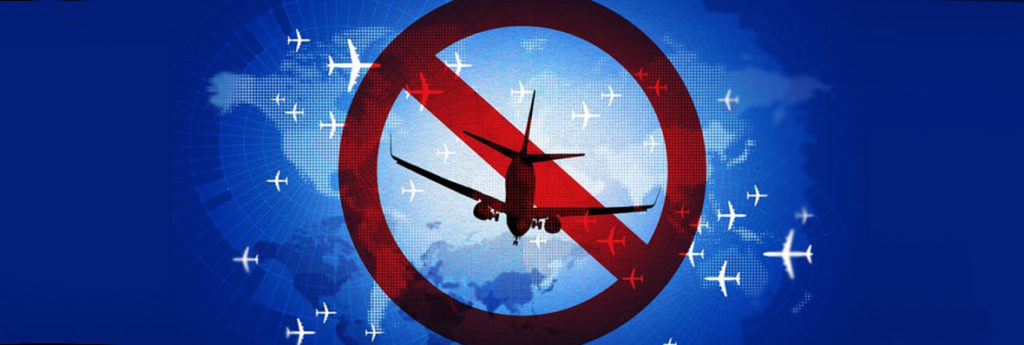Nearly all global destinations have imposed travel restrictions due to the coronavirus pandemic, says the World Tourism Organization (UNWTO). In a newly released report “published at a time of unprecedented disruption for the sector,” the UNTWO says its research shows that as of April 6, 96 percent of all worldwide destinations had introduced travel restrictions in response to COVID-19. Around 90 destinations have completely or partially closed their borders to tourists, while a further 44 are closed to certain tourists depending on country of origin.
The UNWTO global review shows that the global regions are largely consistent in their response to COVID-19. In Africa, Asia-Pacific, and the Middle East, 100 percent of destinations have adopted COVID-19-related restrictions since January. In the Americas, 92 percent of destinations have taken similar steps, while in Europe, the proportion is 93 percent.
Notable countries without travel bans (as of April 6), included the U.K. and Mexico.
More specifically, the analysis identifies four key types of restrictive measures, namely:
1. Complete or partial closure of borders to tourists
2. Destination-specific travel restrictions (“Passengers who have transited or been in x are not allowed to enter x”)
3. The total or partial suspension of flights
4. Different measures, including requirements for quarantine or self-isolation, medical certificates, invalidation or suspension of visa issuances, etc.
In many instances, destinations have already adjusted their restrictive measures as the situation has evolved. For example, by mid-February, only two weeks after COVID-19 was declared a Public Health Emergency of International Concern (PHEIC), a total of 62 destinations had implemented travel restrictions. Out of those destinations, more than half were from Asia and the Pacific region.
In the following weeks and with the spread of COVID-19 to additional countries, gradually destinations in other regions joined in restricting the entry of tourists with the number of destinations imposing travel restrictions more than doubling from 81 to 181 in the two weeks following the declaration of COVID-19 as a pandemic by WHO on March March 11.
“COVID-19 has impacted travel and tourism like no other event before in history,” says UNWTO Secretary-General Zurab Pololikashvili. “Governments have put public health first and introduced full or partial restrictions on travel. With tourism suspended, the benefits the sector brings are under threat: millions of jobs could be lost, and progress made in the fields of equality and sustainable economic growth could be rolled back. UNWTO therefore calls on governments to continuously review travel restrictions and ease or lift them as soon as it is safe to do so.”
Over recent years, as the United Nations specialized agency for tourism, UNWTO has been regularly monitoring travel facilitation and observing a continuous trend towards more openness. COVID-19 has dramatically interrupted this, notes the UNTWO, though the organization says it will continue to regularly track and analyze the evolution of travel restrictions in an effort to effectively support the responsible but also timely recovery of the tourism sector.

